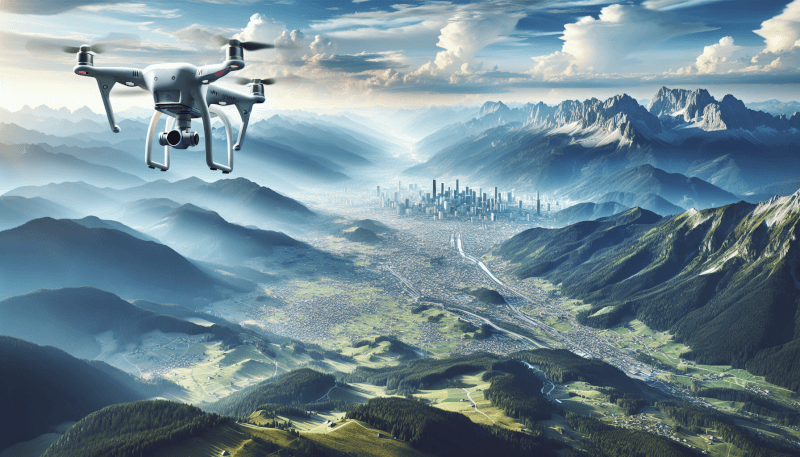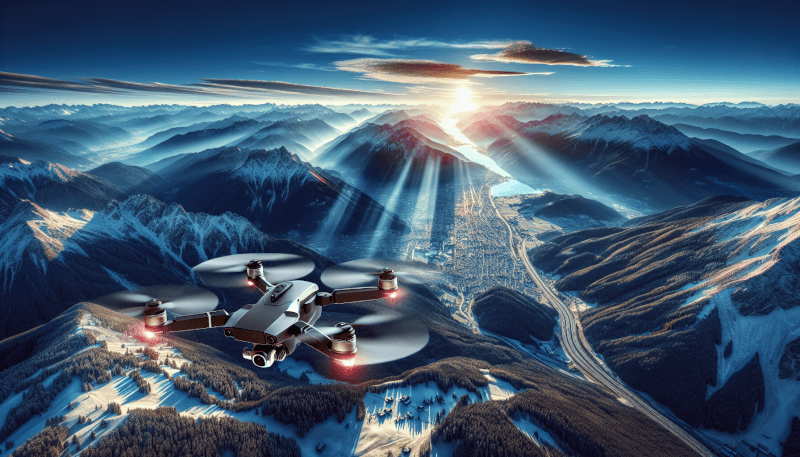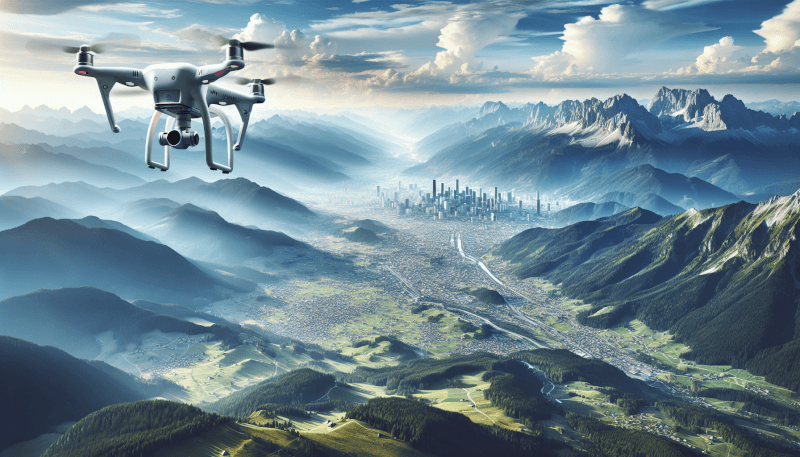Imagine soaring through the sky, capturing stunning and breathtaking views from above. Aerial Photography Services allows you to experience the world from a whole new perspective. Specializing in capturing aerial shots of landscapes, real estate properties, and events, our services offer a unique way to showcase your vision. With state-of-the-art equipment and skilled pilots, we ensure that every shot we take is of the highest quality. Whether you’re looking to capture a bird’s eye view of your property or create captivating visuals for marketing purposes, Aerial Photography Services is here to turn your vision into reality.
Benefits of Aerial Photography Services
Enhanced Perspective
Aerial photography services offer a unique and captivating perspective that is not achievable through ground-level photography. By capturing images and videos from the sky, you are able to showcase your subject in an entirely different light. Whether you are looking to capture the vastness of a landscape, the grandeur of a property, or the intricate details of a construction project, aerial photography allows you to capture it all from a bird’s-eye view. This enhanced perspective provides a fresh and engaging look at your subject, making it stand out and leaving a lasting impression on viewers.
High-Quality Images and Videos
When it comes to capturing stunning images and videos, aerial photography services excel in providing high-quality content. Professional aerial photographers are equipped with state-of-the-art cameras and equipment, ensuring that every shot is sharp, detailed, and visually appealing. The use of advanced technology and techniques in aerial photography allows for crystal-clear images and smooth video footage, enabling you to showcase your subject in all its beauty and splendor. Whether you need images for marketing materials, presentations, or online platforms, aerial photography services will deliver exceptional quality that will impress your audience.
Cost-Effective Solution
Contrary to popular belief, aerial photography services can be a cost-effective solution for various industries and businesses. In the past, obtaining aerial photographs and videos required expensive equipment and the hiring of helicopters or planes, making it a luxury that only a few could afford. However, with the advent of drone technology, aerial photography has become more accessible and affordable. Drones are compact, portable, and equipped with high-quality cameras, making them a cost-effective alternative to traditional aerial photography methods. By opting for aerial photography services, you can save significantly on expenses while still enjoying the benefits of captivating aerial imagery.
Time Efficiency
Time is of the essence, especially in fast-paced industries such as real estate, construction, and land surveying. Aerial photography services offer a time-efficient solution for capturing images and videos. Drones can be deployed quickly and maneuvered easily, allowing for rapid data collection and image capture. Compared to traditional methods that involve time-consuming setups and logistics, aerial photography services provide a streamlined and efficient approach. With the ability to capture images and videos from the air in a fraction of the time, you can save valuable resources and get the visual content you need promptly.
Applications of Aerial Photography Services
Real Estate
One of the most popular applications of aerial photography services is in the real estate industry. Aerial photographs and videos provide potential buyers with a comprehensive view of properties, showcasing their location, size, features, and surrounding amenities. By capturing images from above, aerial photography services allow for a more accurate representation of a property’s layout, landscaping, and neighborhood. This enables real estate professionals to market properties effectively, attracting more buyers and closing deals faster.
Construction and Architecture
Aerial photography services play a crucial role in the construction and architecture industries, providing an invaluable tool for project management, progress tracking, and documentation. Through aerial photographs and videos, construction companies can monitor the development of a project, identify potential issues, and communicate effectively with stakeholders. Additionally, architects can use aerial imagery to visualize proposed designs and assess how they fit within their surroundings. Aerial photography services offer a holistic view of construction projects and ensure that they are executed efficiently and according to plan.
Land Surveying and Mapping
Aerial photography services have revolutionized land surveying and mapping practices. With the ability to capture detailed images from the sky, aerial photographers provide accurate and comprehensive data for land surveying and mapping purposes. Aerial surveys allow for the identification of boundaries, topographical features, and environmental conditions, aiding in land management, urban planning, and infrastructure development. The use of aerial imagery in land surveying and mapping ensures precision and efficiency, saving time and resources for both professionals and clients.
Environmental Monitoring
Aerial photography services are instrumental in environmental monitoring and conservation efforts. By capturing images and videos from above, environmental scientists can assess the health of ecosystems, monitor changes in vegetation cover, and track the impact of human activities on the environment. Aerial surveys enable the identification of critical areas, such as wetlands or forests, that require protection or restoration. With the aid of aerial photography services, environmental monitoring becomes more accessible, efficient, and accurate, facilitating the preservation and sustainable management of natural resources.
Tourism and Hospitality
The tourism and hospitality industries greatly benefit from the captivating visuals provided by aerial photography services. Aerial images and videos showcase tourist destinations, hotels, resorts, and recreational facilities from a unique and captivating perspective. By highlighting the natural beauty and amenities of a location, aerial photography services attract potential visitors and entice them to explore what the destination has to offer. Whether used in brochures, websites, or social media platforms, aerial imagery enhances the marketing efforts of tourism and hospitality businesses, ultimately driving more bookings and revenue.

Choosing the Right Aerial Photography Service Provider
Experience and Expertise
When selecting an aerial photography service provider, it is crucial to consider their experience and expertise in the field. Look for a provider with a proven track record and a portfolio that showcases their skills and capabilities. Aerial photography requires specific knowledge and techniques to capture optimal images and videos, so choosing an experienced provider ensures that you will receive high-quality results.
Equipment and Technology
The equipment and technology used by the aerial photography service provider are also essential factors to consider. Drones equipped with high-resolution cameras and stabilizing technology are vital for capturing clear and smooth images and videos. Inquire about the equipment and ensure that it is up-to-date and well-maintained for the best possible outcome.
Safety Measures
Aerial photography involves operating drones in potentially risky environments, so it is crucial to select a service provider that prioritizes safety. Inquire about the safety measures they have in place, such as trained and licensed pilots, insurance coverage, and adherence to aviation regulations. A provider that emphasizes safety will not only protect their equipment but also ensure the safety of people and property on the ground.
Portfolio and Testimonials
Review the provider’s portfolio and testimonials from previous clients to gauge the quality and satisfaction of their work. This will give you an idea of the provider’s capabilities and customer service. A reputable provider will have a diverse portfolio showcasing different types of aerial photography services and positive testimonials from satisfied clients.
Cost and Packages
Consider the cost and packages offered by the aerial photography service provider. Obtain detailed information about pricing, including any additional charges or fees that may apply. Compare the offerings of different providers to ensure that you are getting the best value for your investment. However, avoid solely focusing on price and prioritize the quality and expertise of the provider.
Types of Aerial Photography Services
Oblique Aerial Photography
Oblique aerial photography involves capturing images from an angled or tilted perspective. This technique creates a three-dimensional effect and provides a unique view of the subject. Oblique aerial photography is commonly used in real estate, showcasing properties from a more dynamic and visually appealing angle.
Vertical Aerial Photography
Vertical aerial photography, also known as nadir aerial photography, involves capturing images directly from above, providing a top-down view of the subject. This technique is commonly used in mapping, surveying, and environmental monitoring, as it offers an accurate representation of the subject’s layout and features.
Thermal Imaging
Thermal imaging aerial photography utilizes specialized cameras to capture infrared radiation emitted by objects and surfaces. This type of aerial photography is particularly useful in industries such as energy, construction, and environmental monitoring. Thermal imaging can identify heat leaks, moisture intrusion, and temperature variations, aiding in the detection of energy inefficiencies, building defects, and environmental anomalies.
Surveying and Mapping
Aerial photography services are instrumental in surveying and mapping applications. By capturing high-resolution images from the sky, aerial photographers can create accurate maps, 3D models, and digital elevation models (DEMs). These aerial surveys provide valuable data for land management, urban planning, infrastructure development, and environmental assessment.
Drone Photography
Drone photography encompasses various types of aerial photography, utilizing drones equipped with high-quality cameras to capture images and videos. Drones are versatile, portable, and capable of maneuvering in tight spaces, making them ideal for capturing aerial shots in various industries and scenarios.

Factors to Consider When Hiring an Aerial Photographer
Licensing and Certification
Ensure that the aerial photographer you hire holds the necessary licenses and certifications required by aviation authorities. Licensed drone pilots have undergone training and demonstrated their competence in operating drones safely and legally. Hiring a licensed aerial photographer gives you peace of mind that the services provided adhere to regulatory standards.
Equipment Compatibility
If you have specific equipment requirements, such as the need for thermal imaging capabilities or specialized lenses, confirm that the aerial photographer has the appropriate equipment. Discuss your requirements with the photographer and ensure that their equipment is compatible with your needs.
Insurance Coverage
Aerial photography poses inherent risks, such as equipment failure, accidents, or property damage. Verify that the aerial photographer carries liability insurance to cover any potential damages or accidents that may occur during the course of their work.
Location and Availability
Consider the location of the aerial photographer and their availability to ensure that they can accommodate your project’s timelines and logistical needs. A local photographer may be more familiar with the area and can provide valuable insights and recommendations.
Pricing and Budget
Obtain detailed pricing information from the aerial photographer, including any additional charges that may apply. Compare the pricing with your budget to ensure that the services provided align with your financial capabilities. However, keep in mind that quality and expertise should be prioritized over affordability, as the final output will significantly impact the success of your project.
Process of Aerial Photography Services
Planning and Preparations
The aerial photography process begins with thorough planning and preparations. The photographer will assess the project requirements, determine the best equipment and techniques to employ, and conduct a site visit if necessary. Important factors such as weather conditions, flight restrictions, and safety considerations are taken into account during this stage.
Flight Operations
Once the planning stage is complete, the aerial photographer will commence the flight operations. Depending on the project requirements, the photographer will deploy drones equipped with cameras to capture images and videos from the desired angles and heights. The pilot will adhere to aviation regulations, ensure safety measures are in place, and maneuver the drone to capture the best shots.
Image and Video Capture
During the flight operations, the aerial photographer will capture a series of images and videos according to the project’s specifications. With the use of advanced cameras and technology, the photographer will ensure that the shots are clear, detailed, and visually appealing. The combination of skillful piloting and the use of high-quality equipment guarantees outstanding results.
Post-Processing and Editing
After the image and video capture, the aerial photographer will proceed with post-processing and editing. This stage involves enhancing the visuals, adjusting colors, cropping images, and removing any imperfections. Post-processing plays a vital role in ensuring that the final output meets the client’s requirements and matches the desired aesthetic.
Tips for Getting the Best Aerial Shots
Choose the Right Time of Day
The time of day greatly impacts the quality and mood of aerial shots. Optimal lighting conditions, such as during the golden hour (shortly after sunrise or before sunset), provide soft and warm light that enhances the visuals. Avoid shooting during midday when the sunlight is harsh, resulting in high contrast and unflattering shadows.
Consider Weather Conditions
Weather conditions play a crucial role in aerial photography. Ensure that you check the weather forecast before scheduling a shoot. Ideally, aim for clear skies, minimal wind, and good visibility. Rain, strong winds, or low visibility can hinder the quality of the shots and pose safety risks.
Scout Locations and Plan Shots
Before the actual shoot, scout the locations and plan your shots. Familiarize yourself with the surroundings, identify key features or landmarks to include in your shots, and consider creative angles or compositions. Planning ahead allows you to make the most of your time during the shoot and ensure that you capture the desired images.
Experiment with Different Angles
Aerial photography offers the flexibility to experiment with different angles and perspectives. Take advantage of this by trying out various compositions and viewpoints. Capture shots from different altitudes, angles, and distances to add depth and visual interest to your images. Don’t be afraid to get creative and think outside the box.
Edit and Enhance Images
Post-processing is an essential step in getting the best aerial shots. Enhance the images using photo editing software to adjust colors, increase clarity, and remove any distractions. However, ensure that you maintain a natural and realistic look, avoiding excessive editing that may result in unnatural or unappealing visuals.
Challenges in Aerial Photography
Weather Interference
One of the biggest challenges in aerial photography is weather interference. Inclement weather conditions, such as rain, strong winds, or fog, can disrupt the flight operations and hinder the quality of the shots. It is crucial to closely monitor the weather forecast and reschedule shoots if necessary to ensure optimal conditions.
Airspace Restrictions
Airspace restrictions pose a challenge to aerial photographers, particularly in urban areas or near airports. Strict regulations govern drone flights, requiring operators to obtain permits and adhere to specific guidelines. It is essential to be aware of airspace restrictions and obtain the necessary permissions to avoid legal issues and ensure a safe and legal operation.
Equipment Limitations
Although drone technology has advanced significantly, there are still limitations to consider. Drones have limited battery life and payload capacity, which can impact flight durations and the type of equipment that can be used. Additionally, adverse weather conditions or strong winds may affect the stability and performance of drones.
Safety Risks
Operating drones in potentially risky environments poses safety risks that need to be carefully managed. Collisions, equipment failure, or human error can lead to accidents or property damage. Aerial photographers must prioritize safety by conducting risk assessments, following strict safety protocols, and ensuring that their equipment is well-maintained.
Legal and Privacy Concerns
Aerial photography raises legal and privacy concerns, as the use of drones can potentially infringe on individuals’ rights to privacy. It is essential to stay informed about local regulations and obtain the necessary permissions to conduct aerial photography legally. Respecting privacy and adhering to privacy guidelines should be a priority to maintain ethical practices.
Future Trends in Aerial Photography Services
Advancements in Drone Technology
Drone technology continues to advance rapidly, paving the way for exciting developments in aerial photography services. Drones are becoming more intelligent, with features such as obstacle avoidance, automated flight paths, and precise tracking. These advancements simplify flight operations, improve accuracy, and enable photographers to capture shots that were once challenging or impossible.
Artificial Intelligence and Automation
Artificial intelligence (AI) and automation are poised to transform the aerial photography industry. AI algorithms can analyze aerial imagery, detect patterns, and extract valuable data. This allows for faster and more efficient data analysis, empowering professionals in numerous industries to make informed decisions based on aerial imagery.
Expanded Industrial Applications
As more industries recognize the benefits of aerial photography, the applications are expanding rapidly. Industries such as agriculture, insurance, energy, and infrastructure are increasingly incorporating aerial photography services into their operations. Aerial surveys, inspection of assets, and monitoring of infrastructure are just a few examples of the growing industrial applications for aerial photography.
Conclusion
Aerial photography services offer a wide range of benefits and applications for businesses and industries. From enhanced perspectives and high-quality visuals to cost-effective solutions and time efficiency, the advantages are undeniable. Aerial photography services find their place in industries like real estate, construction, land surveying, environmental monitoring, and tourism, providing valuable visual content for marketing, monitoring, and decision-making purposes.
When choosing an aerial photography service provider, consider their experience, expertise, equipment, safety measures, and portfolio. The provider should meet your specific requirements and offer competitive pricing without compromising quality.
There are various types of aerial photography services, including oblique and vertical aerial photography, thermal imaging, surveying and mapping, and drone photography. Each type has its own unique strengths and applications, catering to different industries and projects.
To get the best aerial shots, carefully choose the time of day, consider weather conditions, scout locations, experiment with angles, and enhance images through post-processing. These tips will help you capture stunning visuals that effectively convey your message or showcase your subject.
While there may be challenges in aerial photography, such as weather interference, airspace restrictions, equipment limitations, safety risks, and legal concerns, advancements in drone technology, artificial intelligence, and automation are paving the way for a promising future. Aerial photography services continue to evolve and expand their industrial applications, offering endless possibilities for businesses and industries. Embracing these services can lead to transformation and innovation in various sectors, bringing about positive change and unlocking new opportunities.


